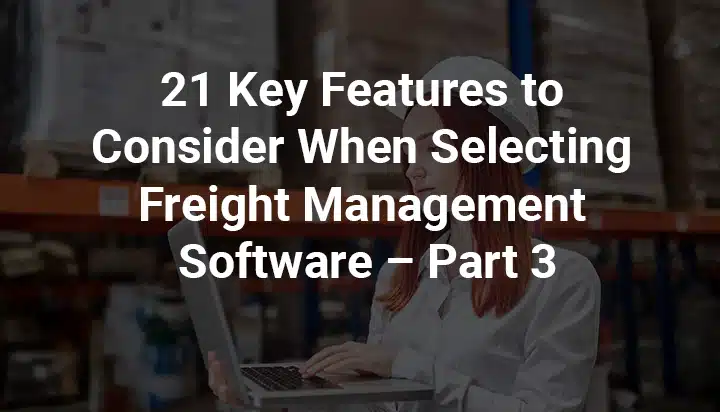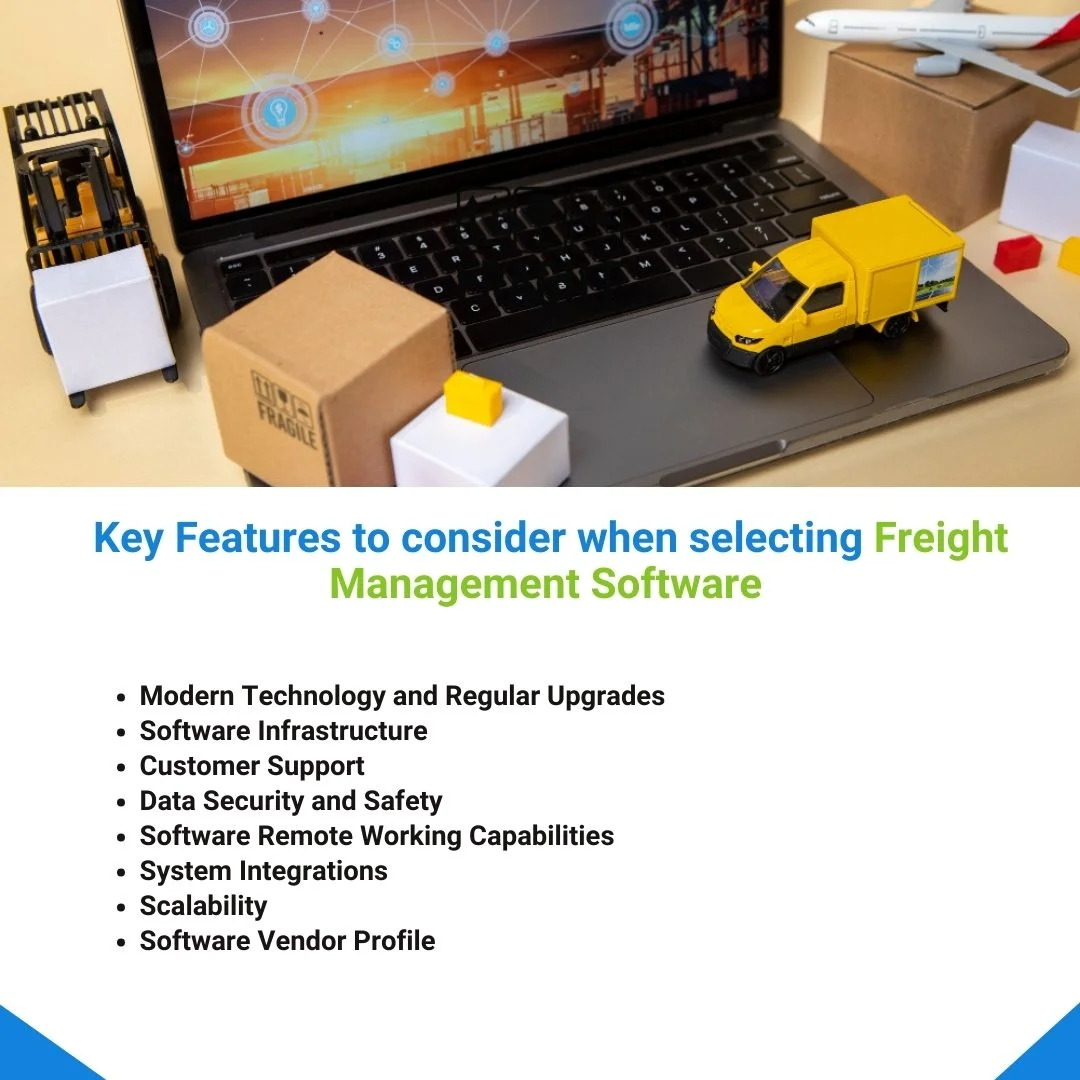21 Key Features to Consider When Selecting Freight Management Software – Part 3
April 15, 2024 Freight Forwarding Software
This blog explores key additional factors to consider when selecting freight management software, complementing critical features discussed previously. It emphasizes aspects such as modern technology adoption, infrastructure flexibility, robust customer support, data security measures, remote working capabilities, integration capabilities, scalability, and vendor reliability. By focusing on these factors, businesses can make informed decisions to optimize logistics operations and drive growth in the dynamic freight management landscape. In our previous discussion on selecting the right freight management software, we delved into critical features that ensure operational efficiency and enhance logistics operations. Continuing that path, let’s explore a set of additional factors crucial for making an informed decision when choosing freight management software. Software Product Features 10. Modern Technology and Regular Upgrades: It’s imperative to ensure that the freight management software operates on modern technologies compatible with various devices like smartphones and tablets. Additionally, regular upgrades are vital as they fix errors, bugs, and legacy system issues while ensuring compatibility with upcoming technologies and operating systems. Embracing modern technology ensures that your software remains efficient and adaptable in the rapidly evolving logistics landscape. 8. Software Infrastructure: Traditionally, software providers favored in-premises infrastructure setups, leading to limitations such as constrained storage space and performance issues. Opting for Software as a Service (SaaS) based infrastructure provides flexibility and reduces administrative costs associated with in-premises setups. This shift empowers businesses to scale their infrastructure according to evolving needs while ensuring optimal performance and cost-effectiveness. 12. Customer Support: For businesses with multiple branches or locations, multilocation access is crucial. It allows for easy transactions among different branches using inter-company vouchers, while also providing checks and analyses for every transaction. Can users perform a complete analysis of transactional data on a group company level as well as on an individual branch level? Multilocation access in freight management software enhances control, visibility, communication, resource allocation, cost-effectiveness, reporting, and scalability. It plays a crucial role in optimizing operations and driving business success in a multi-location environment. 13. Data Security and Safety: Data security is paramount in freight management software selection. Choose freight management software equipped with robust security measures to safeguard sensitive data from cyber threats. Look for ISO-certified solutions that adhere to stringent data security protocols verified by reputable agencies. A strong reconciliation system and secure infrastructure backbone further ensure the authenticity and safety of transactions, instilling confidence in data protection practices. 14. Software Remote Working Capabilities: In today’s dynamic work environment, remote working capabilities are indispensable. Choose freight management software that enables remote access, allowing employees to work from anywhere, anytime. This flexibility enhances productivity and efficiency by eliminating geographical constraints and enabling seamless collaboration across distributed teams. 15. System Integrations: Seamless integration with third-party portals, carrier portals, or custom portals is essential for optimizing freight management operations. Ensure that the software offers secure APIs for smooth integration, safeguarding operational and financial data. Integration capabilities enhance workflow efficiency, data accuracy, and overall operational visibility, facilitating streamlined logistics processes. 16. Scalability: It is crucial for accommodating business growth and adapting to changing requirements. Select freight management software that offers scalability, enabling you to scale up or down your operations effortlessly. Evaluate how easily the software can scale on hardware infrastructure, particularly in cloud environments, to ensure seamless scalability management aligned with business needs. 17. Software Vendor Profile:Assess the vendor’s background and experience in the freight forwarding industry to gauge their expertise and reliability. Conduct thorough research on the vendor’s customer base and seek references to validate their track record with logistics service providers. Understanding the vendor’s experience and reputation is essential for selecting a trusted partner committed to delivering high-quality software and support services. In conclusion, prioritizing these additional factors alongside critical features ensures that you invest in freight management software that aligns with your business objectives, enhances operational efficiency, and drives growth in the competitive logistics landscape. By making informed decisions and choosing the right software partner, you can navigate the complexities of freight management with confidence and success. In the last Part (Part 4) of this series, we’ll explore additional factors to consider, such as analytics with the help of BI tools, dashboard & reports, mobile app, and digital platform for freight forwarding customers. Stay tuned for Part 4 of the series to get insights on selecting the right freight ERP software for your business. Click here to read Part 2 and learn the critical features (like integration capabilities, scalability, and customer support.) to consider when selecting freight management software to enhance logistics operations.



